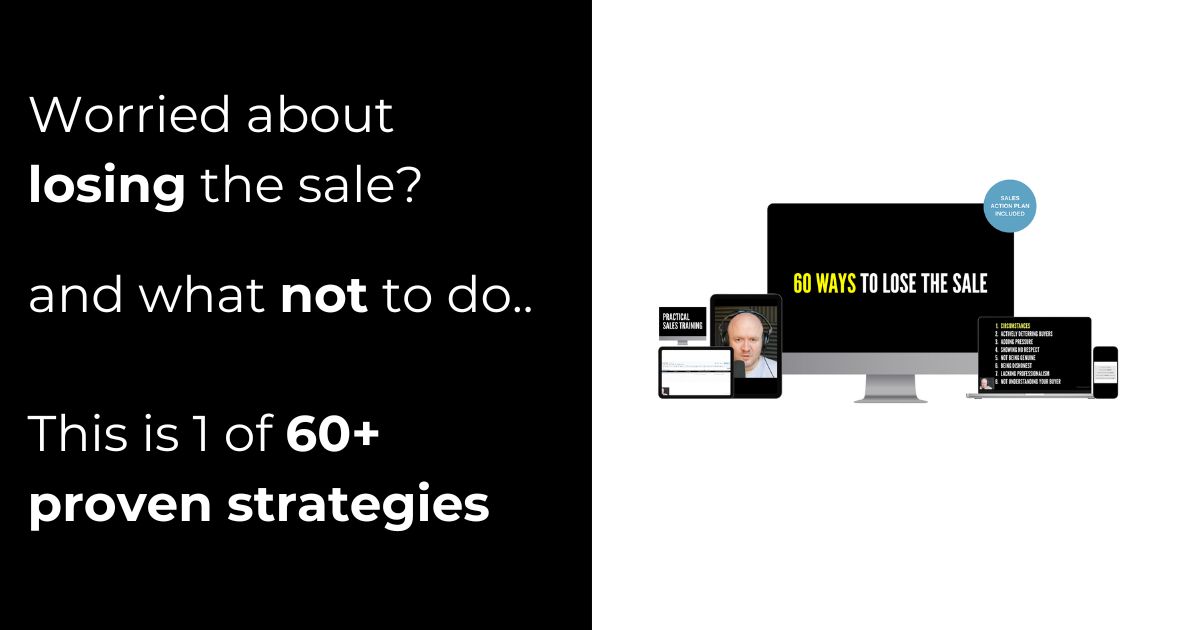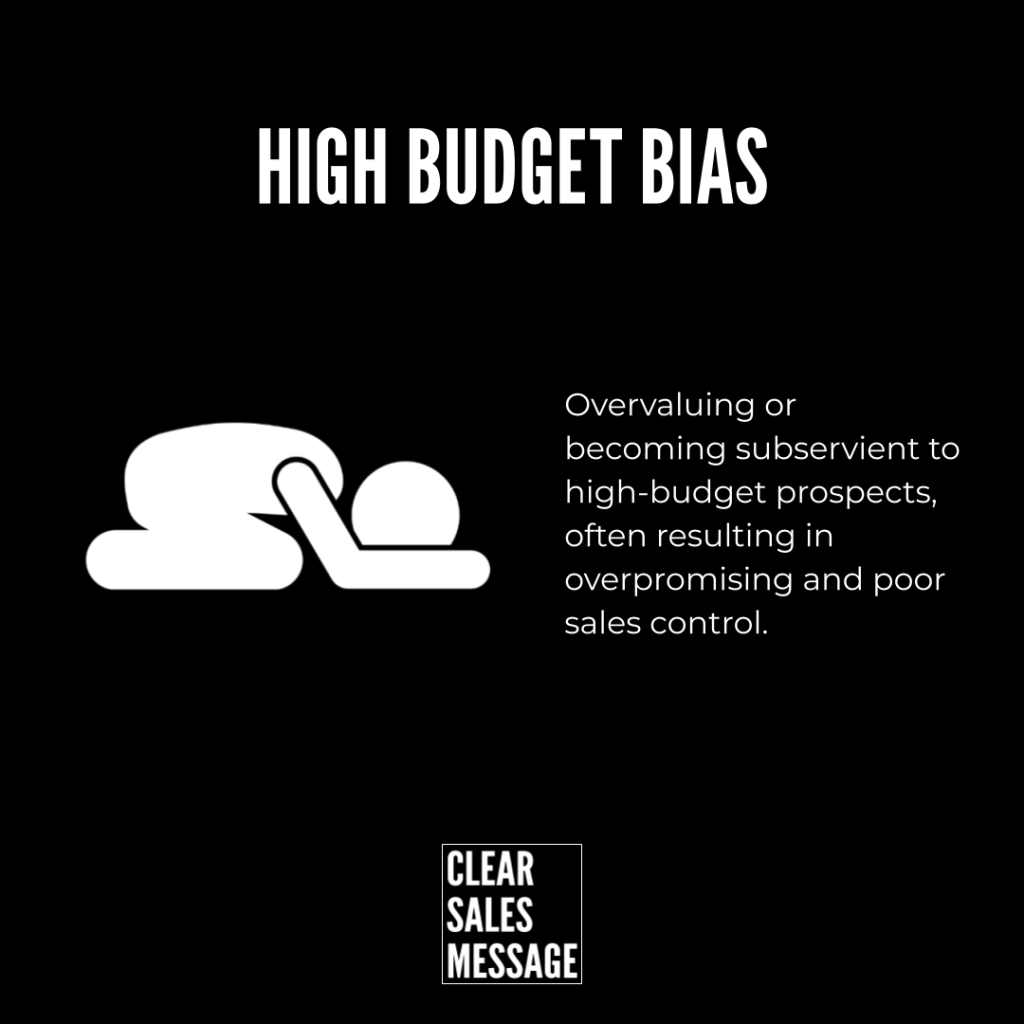Practical Sales Training™ > How To Lose The Sale> High Budget Bias
What is High Budget Bias?
High Budget Bias is the tendency to overvalue a prospect or client simply because they have a large budget, or they’re a well-known company. Salespeople often fall into the trap of being overly subservient, giving away discounts, or overcommitting in hopes of winning the “big fish.”
The reality is that a large budget doesn’t guarantee a sale, and treating high-budget clients differently can backfire.
How Does High Budget Bias Work?
When faced with a prestigious client or a large budget, many salespeople unconsciously change their behaviour. They might:
-
Overpromise to secure the deal.
-
Spend disproportionate time on one prospect, neglecting others.
-
Reduce their confidence or value proposition, becoming “desperate” for the sale.
High Budget Bias often leads to losing control of the sales process – and ironically, this can cause the sale to fall through.
How Can You Use This in Sales?
To avoid High Budget Bias, treat big-budget prospects like any other client:
-
Stay confident – your product or service has value regardless of who’s buying.
-
Don’t discount too quickly – big companies respect those who hold their value.
-
Keep perspective – big clients can take longer to decide, so don’t neglect your other leads.
Balance your focus. A large sale might be attractive, but a consistent stream of medium or smaller sales often creates better cash flow and stability.
Hypothetical Example of High Budget Bias:
A marketing agency is approached by a large, well-known retail brand with a £500,000 advertising budget. Excited by the “big name,” the agency immediately drops everything to focus on this one potential client.
They overpromise by suggesting unrealistic campaign results, agree to extra deliverables at no charge, and spend so much time trying to win this account that they neglect their smaller but loyal clients.
In the end, the retail brand decides to go with another agency after months of delays, leaving the marketing agency with no deal and a few unhappy smaller clients who felt ignored.
If the agency had treated the big prospect like any other client – staying confident in its value and not overextending – it could have avoided wasted time and damaged relationships.
See also



